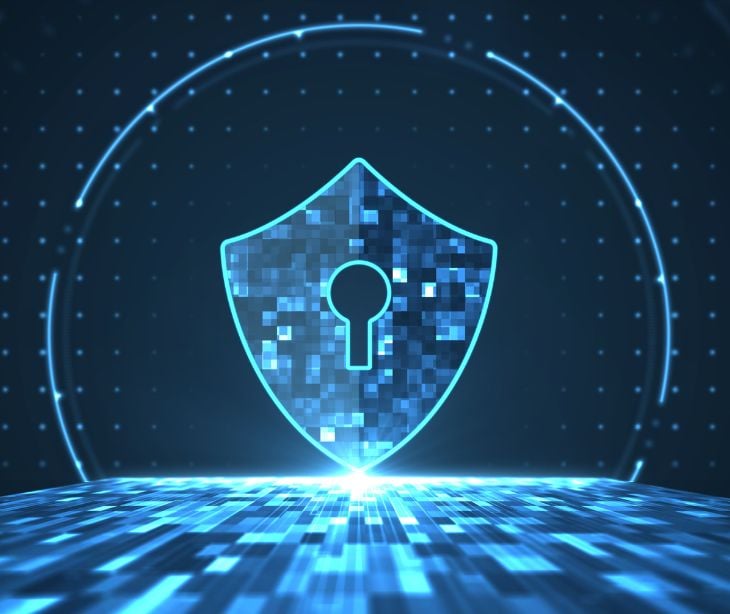%20-%202024-10-07T172857.658-1.jpg)
A distributed denial-of-service (DDoS) attack impacts HIPAA compliance by disrupting the availability of protected health information (PHI), a requirement under the HIPAA Security Rule. It can also expose vulnerabilities that compromise the confidentiality and integrity of PHI. If healthcare organizations fail to implement proper safeguards or respond adequately to a DDoS attack, they risk violating HIPAA regulations.
What is a distributed denial-of-service (DDoS) attack?
A DDoS attack involves multiple systems sending a large volume of traffic to a targeted server or network, effectively overloading its capacity. It results in slowdowns or complete service outages, making systems inaccessible to users.
In healthcare, this could prevent access to electronic health records (EHRs), telemedicine services, and other infrastructure. These disruptions pose operational challenges and legal risks, particularly concerning compliance with HIPAA.
Read more: What is a DDoS attack?
Why healthcare is targetted
Healthcare organizations are targets for cyberattacks due to the sensitive nature of the data they handle and their reliance on continuous system availability. Attackers may be motivated by:
- Financial gain: Cybercriminals may use DDoS attacks as a precursor to extortion, demanding a ransom to stop the attack or threatening to exploit vulnerabilities.
- Disruption of critical services: A well-timed DDoS attack can cripple a hospital or clinic’s operations, potentially endangering patient safety.
- Data breaches: DDoS attacks can be used as distractions while hackers attempt to steal PHI or infiltrate the network.
The HIPAA Security Rule and its core requirements
HIPAA sets strict requirements for the security and privacy of PHI. According to the HHS, "The Security Rule requires covered entities to maintain reasonable and appropriate administrative, technical, and physical safeguards for protecting e-PHI. Specifically, covered entities must: ensure the confidentiality, integrity, and availability of all e-PHI they create, receive, maintain or transmit.".
DDoS attacks primarily affect the availability of data, a core element of the HIPAA Security Rule. If an organization cannot access PHI when needed due to a DDoS attack, it may violate HIPAA’s requirements for maintaining data availability.
How a DDoS attack can impact HIPAA compliance
- Availability of PHI: If healthcare providers are unable to access patient information due to a DDoS attack, it directly impacts patient care. HIPAA requires PHI to be readily available to authorized personnel, and service disruptions may result in non-compliance.
- Confidentiality of PHI: Though DDoS attacks primarily target availability, they can also expose vulnerabilities for accessing PHI.
- Integrity of PHI: A prolonged attack could lead to corrupted or incomplete patient records, resulting in inaccurate treatment or care, further violating HIPAA’s integrity requirement.
Steps to mitigate DDoS risks and maintain HIPAA compliance
- Implement DDoS protection solutions: Use advanced firewalls, traffic filtering, and load balancing to defend against DDoS attacks. Redundant systems can ensure service availability even under attack.
- Develop and test incident response plans: Ensure your organization has a response plan and train staff to handle a DDoS attack effectively. Regularly test the plan to identify potential weaknesses.
- Conduct regular risk assessments: HIPAA requires organizations to assess their systems for vulnerabilities, including the risk of DDoS attacks. Continuously monitor and patch security weaknesses.
- Ensure business associate compliance: Third-party vendors handling PHI have signed BAAs and are prepared to handle DDoS attacks.
In the news
In April 2024, French cloud computing company OVHcloud stopped a massive DDoS attack that hit a record 840 million packets per second (Mpps). The attack broke the previous record of 809 million Mpps set in 2020. Attackers used a combination of methods, flooding OVHcloud’s systems with traffic from 5,000 IP addresses and amplifying it through 15,000 DNS servers. Most of the attack traffic came from just four locations in the U.S.
FAQs
Can a DDoS attack result in data theft?
While a DDoS attack itself does not steal data, it can be used as a distraction while attackers attempt to breach systems and steal PHI, leading to HIPAA violations.
Is encrypting PHI enough to prevent compliance issues during a DDoS attack?
Encryption helps protect PHI confidentiality, but a DDoS attack that disrupts access to systems still violates HIPAA’s requirement to maintain data availability, so encryption alone isn't sufficient.
Are telemedicine platforms more vulnerable to HIPAA violations during a DDoS attack?
Telemedicine platforms, heavily reliant on online access, are especially vulnerable to DDoS attacks. Disruptions can prevent secure communication and access to PHI, leading to potential HIPAA violations if safeguards are inadequate.




%20(76).jpg)